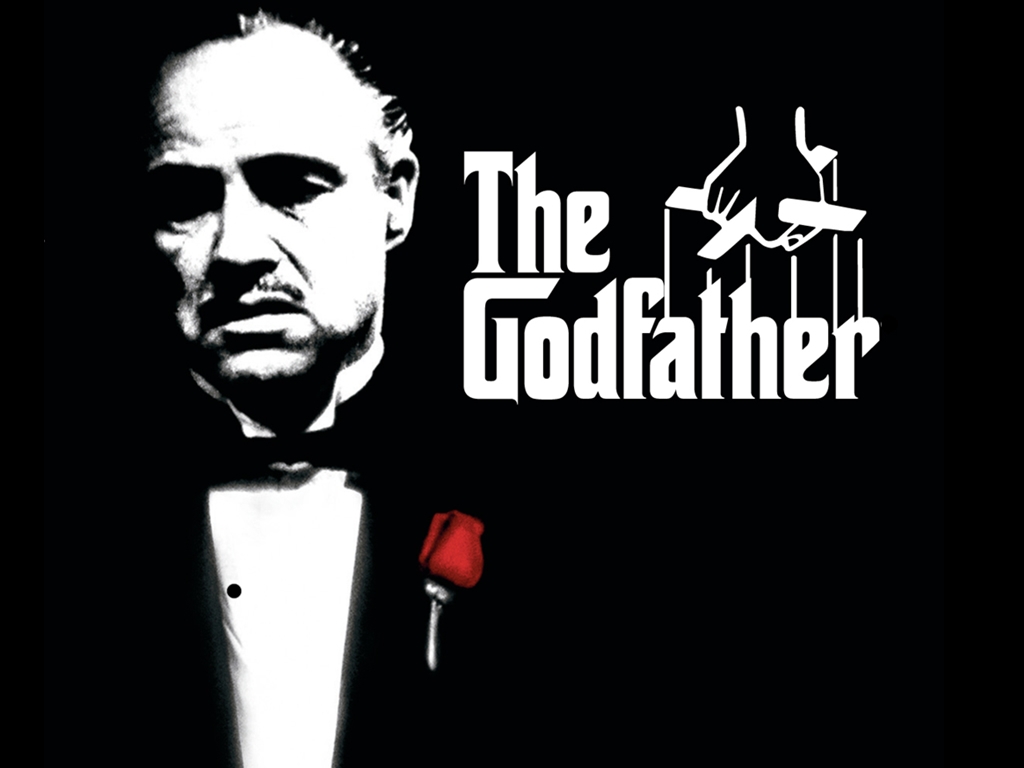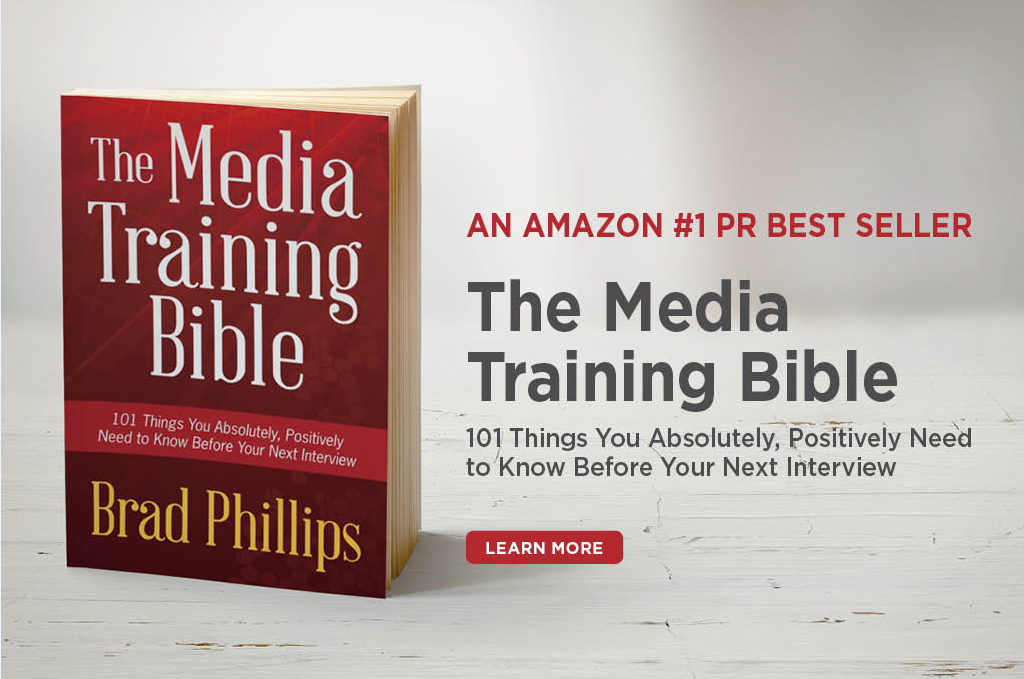Seven Ways To Respond To A Negative News Story
This is an excerpt from my new book, The Media Training Bible: 101 Things You Absolutely, Positively Need to Know Before Your Next Interview, now available in soft cover and all major e-book formats.
I’m occasionally asked whether it’s ever appropriate to “freeze a reporter out,” or refuse to speak to him again.
Whenever I hear that, I immediately think of a scene out of The Godfather or Fatal Attraction, complete with horse’s head and boiled bunny. I imagine frustrated interviewees suddenly appearing as caped crusaders, exacting their revenge on unfair journalists by “rubbing them out.”
Think hard before you do that. Freezing a reporter out is a dramatic step that often backfires. After all, you probably think a company is guilty when a newscaster says, “We contacted representatives from the Huge Corporation, but they refused to return our phone calls.”

Before blacklisting a reporter, consider these remedies:
1. Take it to a neutral party: It’s an age-old truth: The closer you are to a news story, the more likely it is you will find it flawed. Ask neutral parties to read, listen to, or watch the story and give you their feedback. You may be surprised to find that the message you hoped would get through to the audience did, indeed, get through.
2. Talk to the reporter: Reporters need access to sources to do their jobs, and good reporters are willing to hear their sources’ objections to a story (they may not agree with you, but they usually listen). When you speak, remain polite regardless of the response. You will get a better reaction to a discussion about objective factual errors than subjective differences of opinions, but you’re welcome to make your case if you believe their view lacks perspective. If they’ve gotten a key fact wrong, you’re entitled to request a correction.
3. Write a response: You may have forums available to you for a response, such as a letter to the editor, an op-ed, or a website’s comments section. Don’t repeat the original errors in your response, since doing so gives those errors more airtime. Just articulate your view.
4. Speak to the editor: If you’ve gotten nowhere with the reporter, you can raise your objections with the reporter’s boss. Who knows? You may be the fourth person to complain about the same reporter in the past week. There is a downside here, though—no one likes to be complained about, and the reporter may take it out on you with even less favorable news coverage in the future.

5. Respond with statements only: If it’s clear that the news organization is irrevocably biased against your company, you have two choices: cut off all access for future stories or respond to subsequent inquiries from that news organization with precision. I usually recommend the latter, which means sending a short written statement in response to future queries. That brief statement prevents the reporter from saying you refused to comment, and gives you more control over the quote.
6. Cut off all access: The only time I ever recommend cutting off all access is when there is nothing to be gained by speaking to the reporter. Those cases may exist, but they’re rare. Most of the time, good media management means finding solutions to working with journalists, not avoiding them altogether.
7. Use online and social media: Cutting off access to a news outlet doesn’t mean you stop communicating. Use online and social media to continue communicating with your key audiences through all available channels, including your company website and blog, and your corporate social media accounts.
The Media Training Bible is available from Amazon here and for the Kindle here.



I did ONCE in my career refuse to talk to a TV reporter after a particularly bad story. I called her editor and basically told him that I would be more than happy to speak to any other reporter on staff, but I would no longer talk to her because I did not trust her to do a fair and balanced story. End of problem.
I’ve only done it once, but it was an egregious incident and I was not about to have the same experience with this reporter. Sometimes you have to protect yourself and your organization.
We had an experience with a reporter for a respected national publication who was not biased against us, but had clearly not done his homework on either our company or the industry. He asked rookie questions that he should have known about coming into the interview, and as such distracted our spokesperson by causing him to give a “101” type of interview on both our business and the industry. The result was a disastrous interview. We’ve flagged him for the future with the plan that only one particular spokesperson within the organization who is very experienced will speak to him in the future, and that we will be meticulously prepared with our message for the interview. I think that works best in this and other situations.
There’s a line from one of the Godfather movies (which one, I can’t recall) that I seriously consider and sometimes express to others during during conversations when the “other side” has inflamed emotions. The line: “Don’t hate your enemy, it clouds your judgement.”
Jeff,
I love that quote, and only wish I had thought to include it in this article (and in The Media Training Bible). Thank you for your comment.
Brad
Well written & with years of experience in the business. As a journalist turned PR professional over last 19 years – have been participant on both sides.
In India – forums outside newspaper have not been helpful like the Press Council of India and with no forum for TV & Online – becomes difficult to defend your client when stories appear in these mediums.
With over 800 TV channels operating in India in English & regional languages and another 400 likely to get operational before 2014 when country goes for elections – its a huge number to deal with for any client. 80% of regional channels are more of nuisance value as they are owned by politicians driven by their vested interest & agenda and coverage is very biased and reporter & editor have little say if the owner decides to go against the client.
In my experience as a PR professional over last 12 years in India across business sectors – easy to handle print media in English & Financial dailies but regional dailies are difficult; primarily they still don’t acknowledge the services of a PR person talking to them in smaller towns where the client has operations – manufacturing, sales, services etc and head office doesn’t like to get involved at local level – client gets caught in crossfire at times.
The larger problem being faced in recent times after a slew of channels started news broadcast is about lack of redressal once a TV channel runs a negative story on both national or regional TV stations. Despite availability of tracking mechanisms, difficult to get your version across especially in local vernacular channels since they run the clip for a couple of hours and suddenly withdraw and you might come to know after some time – since the channels are so many and at times difficult to track in local markets.
Alternatively, when you come to know about a negative story being aired on local or national TV – your reactions|views get knocked out or twisted out of context and with editing skills in TV channels – very difficult to get your viewpoint as a reaction to a story run by a channel aired in right context. With the lack of a proper redressal mechanism in form of an institutional body – clients tend to either ignore or suffer in silence and hence the remedy no. 6 tends to take precedence especially if they don’t have a PR guy to manage their affairs.
its a very tough situation in India with the burgeoning TV channels especially in regional media and lack of acceptance of PR professionals in these markets due to they not exposed to this kind of working on behalf of clients. The other challenge is social media where any angry customer posting their comments and it catching momentum with others and some national TV channels who have a show with online news trends carrying the story and might later come on prime time as well.
This throws up lot of opportunities as well for the Indian PR industry to wake up to this harsh reality and prepare itself to deal with the situation and also prepare clients and media in a slow but cautious approach and establish their presence not as fixers & mediators but as professionals who understand the client, business and industry when dealing with media. Expectation tempering of clients on media handling & relations is also a large part of the PR training & Media Training that needs to be done by the PR agency or PR professional.
Good article! Do you (or others) have any thoughts about how to carefully refute a negative story without directing a new audience to it? For example, if you decide to communicate to your audience via social media or a company website or blog, are you inspiring those who may have not seen the original negative story to seek it out?
Hi Nicole,
Thank you very much for your question. It’s a terrific question that deserves its own blog story as a response – so stay tuned! I’ll try to answer your question in the form of a blog post in the next few weeks.
Appreciate you reading the blog,
Brad